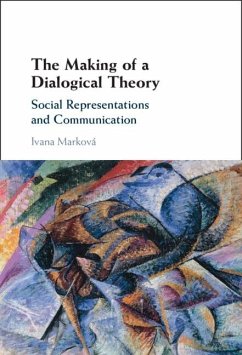Creating a stimulating social theory with long-lasting influence for generations of scholars is driven by multiple interacting factors. The fortune of a theory is determined not only by the author's creative mind but also by the ways in which principal concepts are understood and interpreted. The proper understanding of a social theory requires a good grasp of major historical, political, and cultural challenges that contribute to its making. Considering these issues, Markova explores Serge Moscovici's theory of social representations and communication as a case study in the making of a dialogical social theory. She analyses both the undeveloped features and the forward-moving, inspirational highlights of the theory and presents them as a resource for linking issues and problems from diverse domains and disciplines. This dialogical approach has the potential to advance the dyad Self-Other as an irreducible intellectual, ethical, and aesthetic unit in epistemologies of the human and social sciences.
Dieser Download kann aus rechtlichen Gründen nur mit Rechnungsadresse in A, B, BG, CY, CZ, D, DK, EW, E, FIN, F, GR, HR, H, IRL, I, LT, L, LR, M, NL, PL, P, R, S, SLO, SK ausgeliefert werden.
Hinweis: Dieser Artikel kann nur an eine deutsche Lieferadresse ausgeliefert werden.









